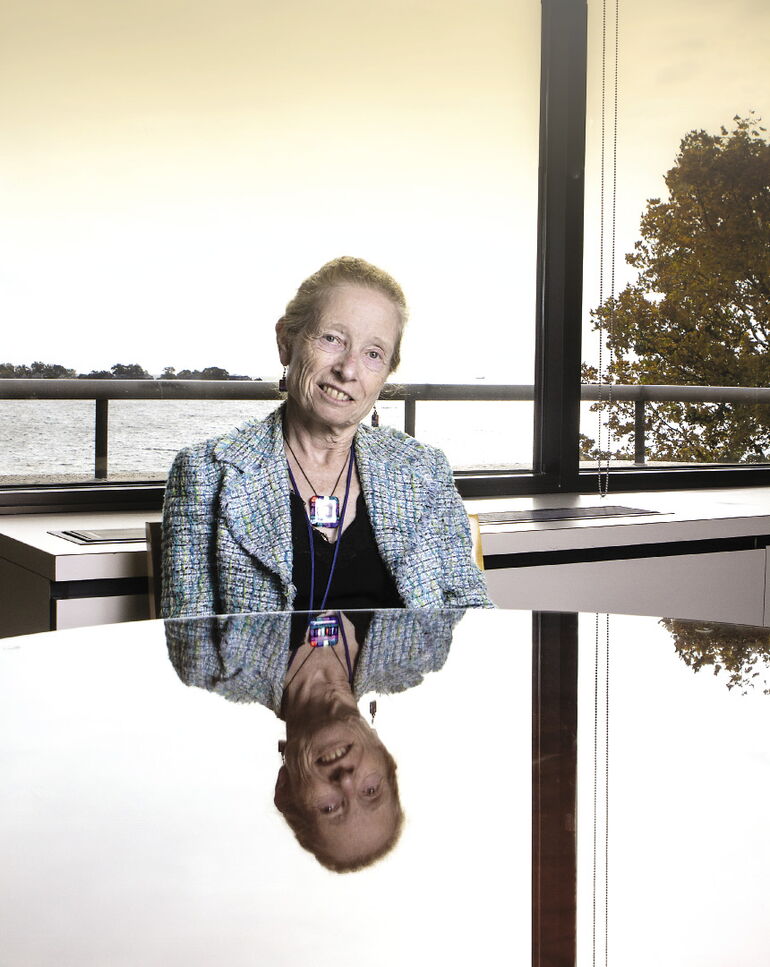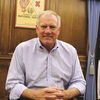Processing Your Payment
Please do not leave this page until complete. This can take a few moments.
-
News
-
Editions
-
- Lists
-
Viewpoints
-
HBJ Events
-
Event Info
- 2024 Economic Outlook Webinar Presented by: NBT Bank
- Best Places to Work in Connecticut 2024
- Top 25 Women In Business Awards 2024
- Connecticut's Family Business Awards 2024
- What's Your Story? A Small Business Giveaway 2024 Presented By: Torrington Savings Bank
- 40 Under Forty Awards 2024
- C-Suite and Lifetime Achievement Awards 2024
- Connecticut's Health Care Heroes Awards 2024
-
-
Business Calendar
-
Custom Content
- News
-
Editions
View Digital Editions
Biweekly Issues
- April 15, 2024
- April 1, 2024
- March 18, 2024
- March 4, 2024
- February 19, 2024
- February 5, 2024
- January 22, 2024
- January 8, 2024
- Dec. 11, 2023
- + More
Special Editions
- Lists
- Viewpoints
-
HBJ Events
Event Info
- View all Events
- 2024 Economic Outlook Webinar Presented by: NBT Bank
- Best Places to Work in Connecticut 2024
- Top 25 Women In Business Awards 2024
- Connecticut's Family Business Awards 2024
- What's Your Story? A Small Business Giveaway 2024 Presented By: Torrington Savings Bank
- 40 Under Forty Awards 2024
- C-Suite and Lifetime Achievement Awards 2024
- Connecticut's Health Care Heroes Awards 2024
Award Honorees
- Business Calendar
- Custom Content
Barbara Pearce's latest challenge — bringing CT Hospice back to financial health
 PHOTO | Andrew Vendetti
Barbara Pearce confronted her unplanned mid-career challenge with characteristic focus and clarity: ‘Time was of the essence,’ she explains.
PHOTO | Andrew Vendetti
Barbara Pearce confronted her unplanned mid-career challenge with characteristic focus and clarity: ‘Time was of the essence,’ she explains.
A previously unplanned career twist as interim president and CEO of the financially troubled Connecticut Hospice has brought with it “the world’s steepest learning curve,” explains Barbara L. Pearce.
That’s saying quite a bit for Pearce, of Guilford, a Harvard MBA who’s chair and CEO of Pearce Real Estate in North Haven, a company founded by her father, Herbert Pearce, in 1958.
Building on that legacy was a natural career path for Pearce, one she’s pursued with considerable success and distinction. But at the end of January, Pearce’s career took an expected and unpredictable turn — that’s when she took on 12-month commitment at the Branford nonprofit, with a mission to streamline operations and re-energize the financially troubled facility.
Longtime Hospice CEO Rosemary Johnson-Hurzeler retired in 2018. It was reported that her philosophy on how to enact organizational changes in the way the organization operated clashed with that of some board members.
Methodology aside, a turnaround was needed. And the right person for the job turned out to be Pearce, for whom the new challenge itself represented a dramatic career shift, or at least a detour.
“My turnaround is full of surprises,” Pearce says with some understatement.
She said she felt lucky in this stage of her life to be hired for such a worthwhile challenge, something she says she could not resist.
Another reason she undertook the challenge is because, she explains, “I felt I was honoring my family’s legacy of community service. My father’s best friend, Fred Grave, was the Connecticut Hospice board chair early on, and I think my father was the vice chair.”
In addition, Pearce adds, “Pearce Real Estate put [Connecticut Hospice] into that building, as well as putting [automotive parts manufacturer Echlin [Inc.] there years before.”
But there’s an even stronger tie that binds Pearce and her family to Connecticut Hospice: Herb Pearce’s life ended there when he passed away in 2011 just days shy of his 95th birthday. The founder of the family real-estate empire was a larger-than-life figure who was much admired and respected in the New Haven business community.
But Herb Pearce’s legacy is not the only Pearce family connection to Connecticut Hospice.
“Connecticut Hospice was founded by Florence Wald, dean of the Yale School of Nursing, where my mother went [to school] and later taught,” Barbara Pearce explains. The institution is very nurse-centric, and I was raised to believe that nurses — especially Yale nurses — were a special breed.”
Pearce holds a bachelor’s degree, a law degree, and an MBA from Harvard. “I’ve used my law degree more here” at Hospice than in her real-estate career, she explains. (Pearce also holds honorary degrees from Albertus Magnus College and the University of New Haven.)
She has served as chair of more boards of directors than she probably cares to count, including the Community Foundation for Greater New Haven, Long Wharf Theatre, the Connecticut Business & Industry Association, the United Way of Greater New Haven, and the Hospital of Saint Raphael.
Shelton lawyer Alan J. Tyma worked with Pearce on the board of the Community Foundation for Greater New Haven, one of Connecticut’s largest philanthropic institutions.
“I succeeded Barbara as chair of the CFGNH [Foundation] board from 2008 to 2009,” he says.
“She was a dynamo who literally ran daily, capably ran the business her father began, and helped run our board with great passion and dedication,” says Tyma. “I’m certain she will persevere to do a great job at Hospice.”
Connecticut Hospice was established in March 1974 as a place for terminally ill patients to live out their days in dignity and peace. Founder Florence Wald based her model on the work being done by Cicely Saunders in palliative care at St. Christopher’s Hospice in London, England, in the 1960s. Three years earlier Wald had established the first hospice in the U.S., and history today credits her as “the mother of the American hospice movement.”
But Connecticut Hospice’s more recent history has been largely devoid of both dignity and peace. Indeed, over the last few years the financial prospects of the 501(c)3 nonprofit have been downright painful.
Hospice board Chairman Anthony (Unk) DaRos says the nonprofit has faced deep financial difficulties — to the tune of about $4 million in debt — forcing it to seek an interim chief executive officer to reorganize finances and bring costs under control.
That person turns out to have been Pearce, who brought with her a very high level of training and professional experience to the challenge.
“I feel fortunate to have been asked to do something so meaningful, and equally fortunate to have the energy and support that are necessary to accomplish it,” Pearce says. “I would not have been able to do this earlier in my career.”
She also would not have been able to accept the challenge without a trusted executive to step in for her to guide the family business and its fortunes.
Pearce enjoyed “the luxury of an extremely capable No. 2 at Pearce Real Estate, Nanette Pastore, who is now president,” says Pearce. Pastore is managing the company in her absence.
On the home front, Pearce’s children are grown and her husband Norman Fleming recently retired, which Pearce said allows him to “take care of all the pieces of our life that I cannot.”
Pearce describes her feelings about the year-long challenge and steep learning curve, which she compares to a demanding academic undertaking.
“When I was in law school and business school, the [combined Harvard] JD/MBA program required a ‘capstone project’ and an accompanying course at the end of the four years,” she recounts. “I think of Connecticut Hospice as my capstone community project: It incorporates everything I ever learned from everything I ever did, and requires help from everyone I ever knew from anywhere.
“It’s overwhelmingly complex, and benefits from the long view you acquire after decades of management experience.”
Moreover, both the challenge and the organization itself are more complex than meets the eye.
Pearce says the public may not realize the 52-bed facility at 100 Double Beach Road is also an acute-care hospital that treats critically ill patients who are later discharged.
“It’s not a depressing place,” Pearce says. “A good death is as important as a good life.”
She recalls the words of one patient who, after some time at the facility, remarked, “I came here to die, and I learned how to live.”
To navigate the daunting year-long journey, Barbara Pearce enlists the help and support of some other capable professionals.
Pearce commends in particular Joseph Mooney, who works with her as CT Hospice’s interim chief operating officer and chief financial officer. The pair embarked on the challenging assignment at the same time.
“We didn’t know each other [previously], but we are a great working team, and I don’t know what we would do without him,” says Pearce. Mooney is a retired deputy commissioner of the Connecticut Department of Revenue Services.
The feeling is mutual.
“Little did I know when Anthony [Unk] DaRos invited me into Connecticut Hospice to help with the finances, that I would be working alongside a unique woman with a work ethic and drive similar to mine,” Mooney says.
“Barbara and I were equally motivated by the Connecticut Hospice mission and our personal experiences with it. My wife refers to us as the dynamic duo because we simultaneously employ our diverse skills, backgrounds and experiences to re-energize the organization.”
Plenty of “re-energizing” was what was needed.
Says DaRos, the former six-term Branford first selectman, that when he took over the board chairmanship more than a year ago, it was clear a “complete turnaround” was needed.
“We interviewed several people [for the top job] and Barbara was very impressive,” DaRos recalls. “There’s so much work [to be done]. I’m impressed with her performance — the whole board is.”
Board member Woody Comstock adds that Pearce has “an extraordinary work ethic” that typically includes 80-hour work weeks.
“This was not a job that she needed or was looking for,” Constock says. But Pearce has injected infectious enthusiasm into the job as she has worked to change the culture, he adds. “I’m humbled watching what she has achieved,” he adds, characterizing Pearce as direct, fair, and the kind of leader that most professionals would respect and admire.
Comstock adds that Connecticut residents should be pleased that such a caring place as Connecticut Hospice is located in their midst. “It’s a place to provide comfort to the patient and the family,” he says.
The hospice care field has evolved exponentially since the pioneering days of Florence Wald — and the palliative branch of the health-care industry has changed drastically in just the past 10 years, DaRos says, with the proliferation of serious competition.
“People saw there was money to be made” in palliative care, DaRos says. Now, “We’re one of the few nonprofits” remaining in the industry. We were the only one that set the bar and we’re still setting the bar; we have high standards.”
DaRos estimates that in Connecticut alone there are “30 to 40” organizations that now offer hospice care.
The injection of new entrants into the industry place steep competitive and pricing pressures on the nonprofit Connecticut Hospice.
The organization’s website explains:
“We continue to set the national standard for home and inpatient hospice care, and are a leader in palliative care, helping people fully understand their illnesses and treatments so they may choose care that is right for them. Our beautiful inpatient facility can provide medical care to those seeking more than comfort alone, along with expert-level symptom management.”
But CT Hospice’s challenge has little to do with its Branford facility of the skill and dedication of its staff. “It’s not a health-care problem [here], it’s a business problem,” Pearce explains. “Time was of the essence.”
The immediate challenge was reconciling Connecticut Hospice’s budget with its revenue stream. Pearce explains that although the bulk of costs for care are covered by Medicare, philanthropy is vital “to bridge the difference” between income and expenses.
It’s a daunting challenge, on a formidable financial scale. The organization has 350 full- and part-time employees whose work is augmented by some 400 volunteers. “Five percent of the work has to be done by volunteers,” Pearce explains. The reorganization included closing the cafeteria and eliminating about 40 jobs — more than 10 percent of the workforce.
After the painful restructuring last spring, employees told Pearce they hoped she could save Connecticut Hospice. “They care more about Hospice than [their jobs],” Pearce says.
Pearce told staff she would always be “honest and transparent” with them. In a meeting about job cuts, workers applauded to show their support of the reorganization.
The goal of Connecticut Hospice is to make life as comfortable as possible for patients whose days on earth are ebbing, Pearce says. Musicians perform most days at the facility — and not just to provide soothing sounds “People who listen to music need less pain medication,” she explains. Pet therapy is also available.
Patients can eat whatever they like — which means that quite a lot of bacon is requested and served, Pearce says with a smile. She recalls one man who wanted to eat only potato chips.
Referencing her father’s death at Connecticut Hospice, Pearce says “He had a great death, so I experienced the same loving and compassionate care that all patients and families feel.”
Pearce is impressed that the nonprofit is so mission-driven. “How can you not help [employees] who consistently put the organization over themselves and who thank me every day for coming to work?” she asks rhetorically. “I am honored to work with them.”
One aspect of the job that surprised Pearce is that “dying is not a criterion for Medicare approval of hospice benefits.”
She said a hospice patient “needs to have uncontrollable symptoms that cannot be safely managed in another setting.”
Pearce said she also was struck by the passion that residents of the region feel for Connecticut Hospice and how much they want to see the organization become stabilized.
DaRos said the next step for the board is to launch a search for individuals to permanently fill the roles currently held by Pearce and Mooney.
Whomever they retain will have big shoes to fill.

2022 Giving Guide
This special edition informs and connects businesses with nonprofit organizations that are aligned with what they care about. Each nonprofit profile provides a crisp snapshot of the organization’s mission, goals, area of service, giving and volunteer opportunities and board leadership.
Learn more
Subscribe
Hartford Business Journal provides the top coverage of news, trends, data, politics and personalities of the area’s business community. Get the news and information you need from the award-winning writers at HBJ. Don’t miss out - subscribe today.
Subscribe
2024 Book of Lists
Delivering Vital Marketplace Content and Context to Senior Decision Makers Throughout Greater Hartford and the State ... All Year Long!
Read Here-
2022 Giving Guide
This special edition informs and connects businesses with nonprofit organizations that are aligned with what they care about. Each nonprofit profile provides a crisp snapshot of the organization’s mission, goals, area of service, giving and volunteer opportunities and board leadership.
-
Subscribe
Hartford Business Journal provides the top coverage of news, trends, data, politics and personalities of the area’s business community. Get the news and information you need from the award-winning writers at HBJ. Don’t miss out - subscribe today.
-
2024 Book of Lists
Delivering Vital Marketplace Content and Context to Senior Decision Makers Throughout Greater Hartford and the State ... All Year Long!
ABOUT
ADVERTISE
NEW ENGLAND BUSINESS MEDIA SITES
No articles left
Get access now
In order to use this feature, we need some information from you. You can also login or register for a free account.
By clicking submit you are agreeing to our cookie usage and Privacy Policy
Already have an account? Login
Already have an account? Login
Want to create an account? Register
Get access now
In order to use this feature, we need some information from you. You can also login or register for a free account.
By clicking submit you are agreeing to our cookie usage and Privacy Policy
Already have an account? Login
Already have an account? Login
Want to create an account? Register






0 Comments